-
 Bitcoin
Bitcoin $117300
1.99% -
 Ethereum
Ethereum $3884
5.89% -
 XRP
XRP $3.268
9.33% -
 Tether USDt
Tether USDt $1.000
0.02% -
 BNB
BNB $783.0
1.78% -
 Solana
Solana $173.6
3.51% -
 USDC
USDC $0.9999
0.00% -
 Dogecoin
Dogecoin $0.2193
7.00% -
 TRON
TRON $0.3380
0.30% -
 Cardano
Cardano $0.7769
5.08% -
 Stellar
Stellar $0.4350
9.36% -
 Hyperliquid
Hyperliquid $40.23
5.78% -
 Sui
Sui $3.739
6.95% -
 Chainlink
Chainlink $18.30
9.46% -
 Bitcoin Cash
Bitcoin Cash $581.7
2.11% -
 Hedera
Hedera $0.2577
5.51% -
 Ethena USDe
Ethena USDe $1.001
0.00% -
 Avalanche
Avalanche $23.08
4.23% -
 Litecoin
Litecoin $121.7
2.24% -
 UNUS SED LEO
UNUS SED LEO $8.962
-0.34% -
 Toncoin
Toncoin $3.332
1.36% -
 Shiba Inu
Shiba Inu $0.00001273
3.39% -
 Uniswap
Uniswap $10.35
6.84% -
 Polkadot
Polkadot $3.818
4.01% -
 Dai
Dai $1.000
0.01% -
 Bitget Token
Bitget Token $4.446
2.13% -
 Cronos
Cronos $0.1491
4.96% -
 Monero
Monero $255.4
-9.78% -
 Pepe
Pepe $0.00001099
4.80% -
 Aave
Aave $284.0
8.01%
What DeFi functions does Kraken support? Can I participate in mining?
Kraken supports DeFi functions like staking, margin trading, and lending/borrowing, but does not offer direct mining; users can stake or invest in mining-related assets instead.
May 15, 2025 at 03:57 pm
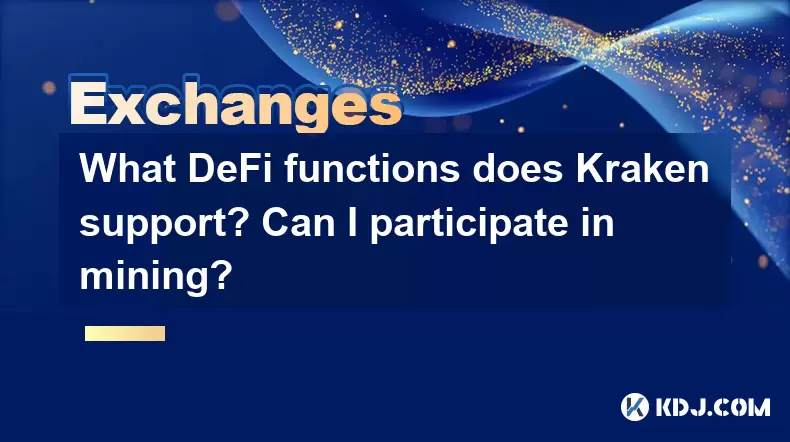
Kraken, one of the leading cryptocurrency exchanges, has expanded its services to include various DeFi (Decentralized Finance) functions, enabling users to engage more deeply with the evolving landscape of digital finance. This article delves into the specific DeFi functions supported by Kraken, and whether users can participate in mining activities through the platform.
DeFi Functions Supported by Kraken
Kraken supports a range of DeFi functions that cater to different needs within the cryptocurrency ecosystem. These functions are designed to provide users with the tools necessary to maximize their returns and engage with the decentralized finance sector.
Staking
Staking is one of the primary DeFi functions available on Kraken. This process allows users to participate in the validation of transactions on a blockchain network, typically in a Proof of Stake (PoS) system. By staking their cryptocurrencies, users can earn rewards in the form of additional tokens.
- Supported Staking Assets: Kraken supports staking for a variety of cryptocurrencies, including but not limited to Ethereum (ETH), Cardano (ADA), and Solana (SOL).
- Staking Process: To stake on Kraken, users need to deposit their supported assets into their Kraken account. Once deposited, they can navigate to the staking section, select the asset they wish to stake, and follow the prompts to start earning rewards.
- Rewards: The rewards from staking are distributed based on the amount staked and the specific rules of the blockchain network. Kraken typically displays the estimated annual percentage yield (APY) for each staked asset.
Margin Trading
Margin trading is another DeFi function offered by Kraken, allowing users to borrow funds to trade larger positions than their current balance would allow. This function is particularly useful for traders looking to amplify their potential returns.
- How to Start Margin Trading: Users can access margin trading by enabling the margin account feature in their Kraken settings. Once enabled, they can deposit collateral and start trading with leverage.
- Risks and Rewards: Margin trading comes with increased risk due to the potential for liquidation if the market moves against the trader's position. However, it also offers the potential for higher returns.
Lending and Borrowing
Kraken also facilitates lending and borrowing of cryptocurrencies, a core component of DeFi. Users can lend out their assets to earn interest or borrow assets against their collateral.
- Lending Process: To lend, users deposit their assets into Kraken's lending pool. The platform matches lenders with borrowers, and lenders earn interest on their deposited assets.
- Borrowing Process: Borrowers can take out loans by providing collateral. The loan amount is determined based on the value of the collateral and the platform's loan-to-value (LTV) ratio.
- Interest Rates: Interest rates for lending and borrowing are dynamically adjusted based on supply and demand within Kraken's ecosystem.
Can I Participate in Mining on Kraken?
Mining, the process of validating transactions and adding them to the blockchain, is traditionally associated with Proof of Work (PoW) networks like Bitcoin. However, Kraken does not directly support mining activities on its platform.
Indirect Mining Participation
While Kraken does not offer direct mining services, users can indirectly participate in mining through certain DeFi functions.
- Staking as an Alternative: Staking on Kraken can be seen as an alternative to traditional mining. In PoS networks, staking serves a similar purpose to mining in PoW networks, as it involves validating transactions and securing the network.
- Investing in Mining-Related Assets: Users can also invest in cryptocurrencies that are directly related to mining, such as mining tokens or stocks of mining companies, which can be traded on Kraken.
How to Maximize Returns with Kraken's DeFi Functions
To make the most out of Kraken's DeFi offerings, users should consider the following strategies:
Diversify Staking Assets
Diversifying staking assets can help spread risk and potentially increase overall returns. By staking multiple assets, users can benefit from different reward structures and network dynamics.
- Research: Before staking, research the different assets available on Kraken to understand their staking rewards and network stability.
- Allocation: Allocate your staking portfolio based on your risk tolerance and the potential returns of each asset.
Utilize Margin Trading Wisely
Margin trading can be a powerful tool for increasing returns, but it requires careful management to avoid significant losses.
- Risk Management: Set stop-loss orders to limit potential losses and only use leverage that you are comfortable with.
- Market Analysis: Conduct thorough market analysis before entering margin trades to increase the likelihood of profitable outcomes.
Engage in Lending and Borrowing
Lending and borrowing can provide a steady stream of passive income or access to additional funds for trading.
- Lending Strategy: Choose assets with high demand and favorable interest rates to maximize your lending returns.
- Borrowing Strategy: Use borrowed funds strategically, such as for margin trading or to take advantage of short-term market opportunities.
Security and Compliance on Kraken
Kraken places a strong emphasis on security and compliance, ensuring that users can engage with DeFi functions safely and legally.
Security Measures
Security measures are critical for protecting users' assets and data. Kraken employs several layers of security to safeguard its platform.
- Two-Factor Authentication (2FA): Users are encouraged to enable 2FA to add an extra layer of security to their accounts.
- Cold Storage: The majority of user funds are stored in offline cold storage wallets, reducing the risk of hacking.
- Regular Audits: Kraken conducts regular security audits to identify and address potential vulnerabilities.
Compliance and Regulation
Compliance and regulation are essential for maintaining the integrity of Kraken's platform and ensuring that users can engage with DeFi functions within legal boundaries.
- KYC/AML: Kraken adheres to Know Your Customer (KYC) and Anti-Money Laundering (AML) regulations to prevent illegal activities.
- Regulatory Compliance: The platform complies with relevant financial regulations in the jurisdictions where it operates, ensuring a safe and transparent environment for users.
Frequently Asked Questions
Q: Can I stake any cryptocurrency on Kraken?
A: No, Kraken supports staking for specific cryptocurrencies. You can check the list of supported assets on their staking page.
Q: Is there a minimum amount required to start staking on Kraken?
A: The minimum staking amount varies depending on the cryptocurrency. You should refer to Kraken's staking guidelines for specific details.
Q: How often are staking rewards distributed on Kraken?
A: Staking rewards are typically distributed on a regular basis, which can be daily, weekly, or monthly, depending on the asset and network rules.
Q: Can I withdraw my staked assets at any time?
A: Withdrawal policies for staked assets vary by cryptocurrency. Some assets may have a lock-up period, while others allow for more flexible withdrawals. Always check the specific terms for each asset on Kraken.
Disclaimer:info@kdj.com
The information provided is not trading advice. kdj.com does not assume any responsibility for any investments made based on the information provided in this article. Cryptocurrencies are highly volatile and it is highly recommended that you invest with caution after thorough research!
If you believe that the content used on this website infringes your copyright, please contact us immediately (info@kdj.com) and we will delete it promptly.
- Cold Wallet Crypto in 2025: The Future is Now, Ya'll
- 2025-08-08 05:10:13
- MAGACOIN, SOL, and ADA: A Tale of Shifting Tides in Crypto
- 2025-08-08 05:10:13
- SHIB Price, PEPE, and the Memecoin Supercycle: Who Will Reign Supreme?
- 2025-08-08 05:50:12
- Pudgy Penguins Price Prediction: Google Trends & Breakout Signals
- 2025-08-08 05:50:12
- UAE Crypto Regulation: SCA and VARA Unite to Streamline the Future of Digital Assets
- 2025-08-08 05:55:48
- MAGACOIN Finance: The Presale Phenomenon Rocking the Crypto World
- 2025-08-08 05:55:48
Related knowledge
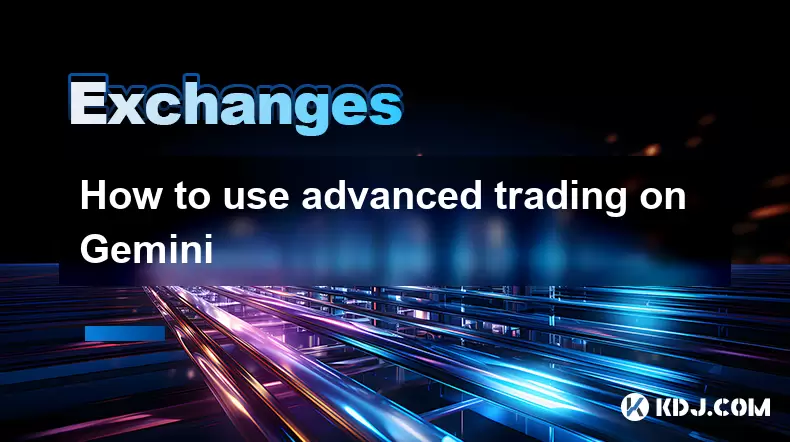
How to use advanced trading on Gemini
Aug 08,2025 at 04:07am
Understanding Advanced Trading on GeminiAdvanced trading on Gemini refers to a suite of tools and order types designed for experienced traders who wan...
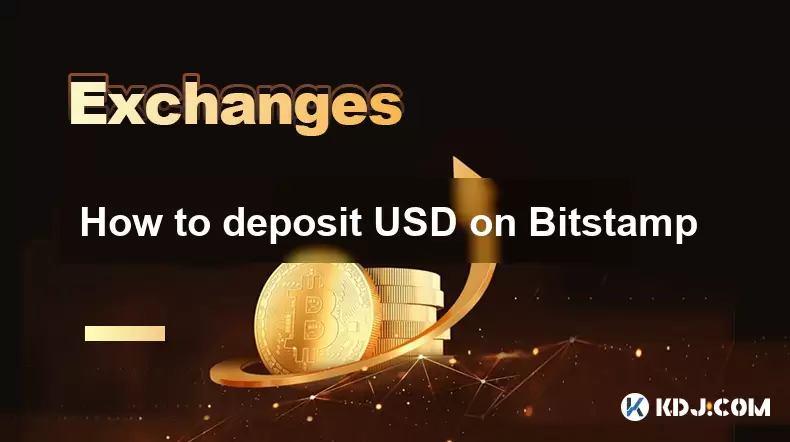
How to deposit USD on Bitstamp
Aug 07,2025 at 05:18pm
Understanding Bitstamp and USD DepositsBitstamp is one of the longest-standing cryptocurrency exchanges in the industry, offering users the ability to...
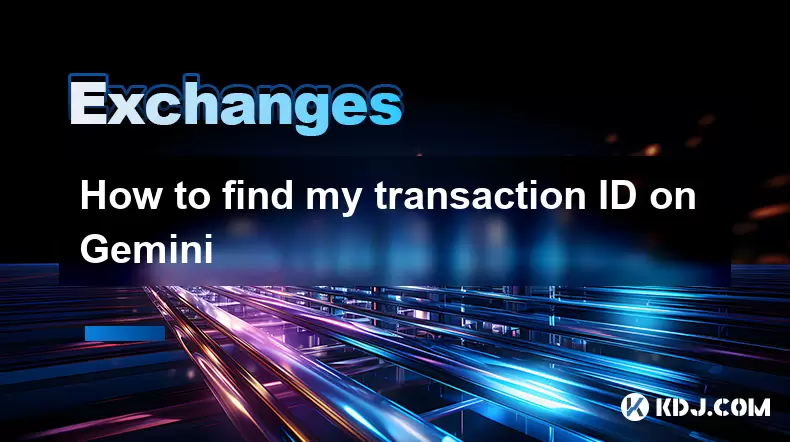
How to find my transaction ID on Gemini
Aug 08,2025 at 12:50am
Understanding the Transaction ID in Cryptocurrency ExchangesA transaction ID (TXID) is a unique alphanumeric string that identifies a specific transfe...
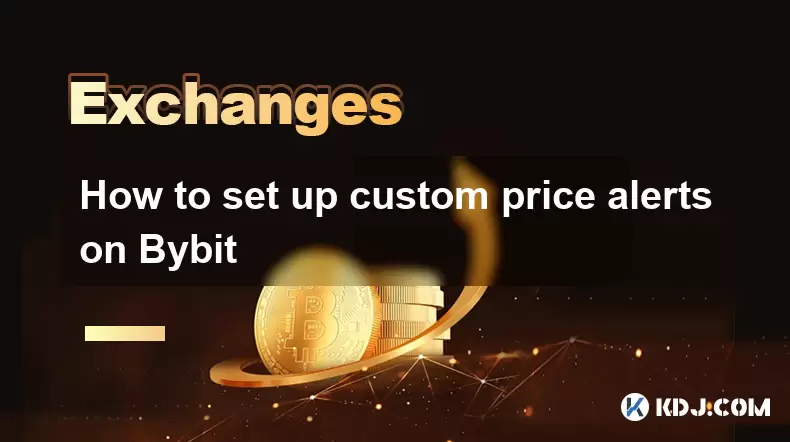
How to set up custom price alerts on Bybit
Aug 07,2025 at 04:31pm
Understanding Price Alerts on BybitPrice alerts on Bybit are essential tools for traders who want to stay informed about significant price movements i...
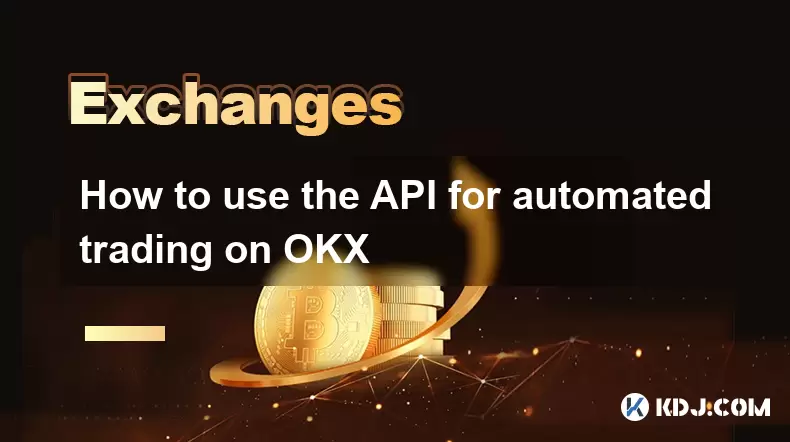
How to use the API for automated trading on OKX
Aug 07,2025 at 05:21pm
Understanding the OKX API for Automated TradingThe OKX API provides a powerful interface for users to automate their trading strategies, access real-t...
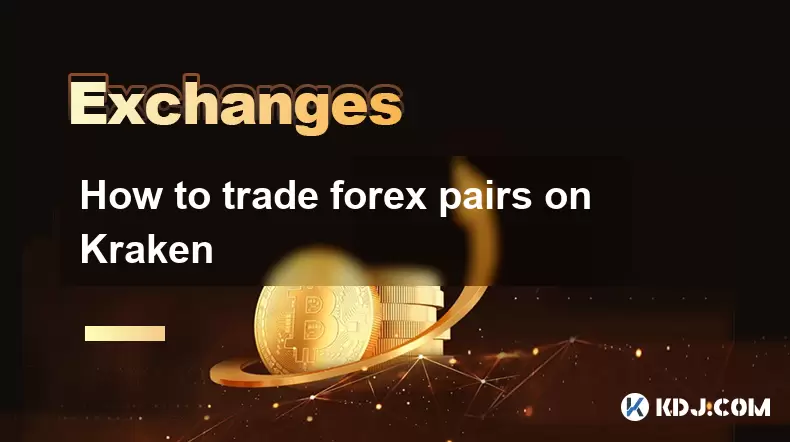
How to trade forex pairs on Kraken
Aug 07,2025 at 11:49pm
Understanding Forex Pairs on KrakenKraken is primarily known as a cryptocurrency exchange, but it also supports select forex pairs through its Kraken ...

How to use advanced trading on Gemini
Aug 08,2025 at 04:07am
Understanding Advanced Trading on GeminiAdvanced trading on Gemini refers to a suite of tools and order types designed for experienced traders who wan...

How to deposit USD on Bitstamp
Aug 07,2025 at 05:18pm
Understanding Bitstamp and USD DepositsBitstamp is one of the longest-standing cryptocurrency exchanges in the industry, offering users the ability to...

How to find my transaction ID on Gemini
Aug 08,2025 at 12:50am
Understanding the Transaction ID in Cryptocurrency ExchangesA transaction ID (TXID) is a unique alphanumeric string that identifies a specific transfe...

How to set up custom price alerts on Bybit
Aug 07,2025 at 04:31pm
Understanding Price Alerts on BybitPrice alerts on Bybit are essential tools for traders who want to stay informed about significant price movements i...

How to use the API for automated trading on OKX
Aug 07,2025 at 05:21pm
Understanding the OKX API for Automated TradingThe OKX API provides a powerful interface for users to automate their trading strategies, access real-t...

How to trade forex pairs on Kraken
Aug 07,2025 at 11:49pm
Understanding Forex Pairs on KrakenKraken is primarily known as a cryptocurrency exchange, but it also supports select forex pairs through its Kraken ...
See all articles

























































































